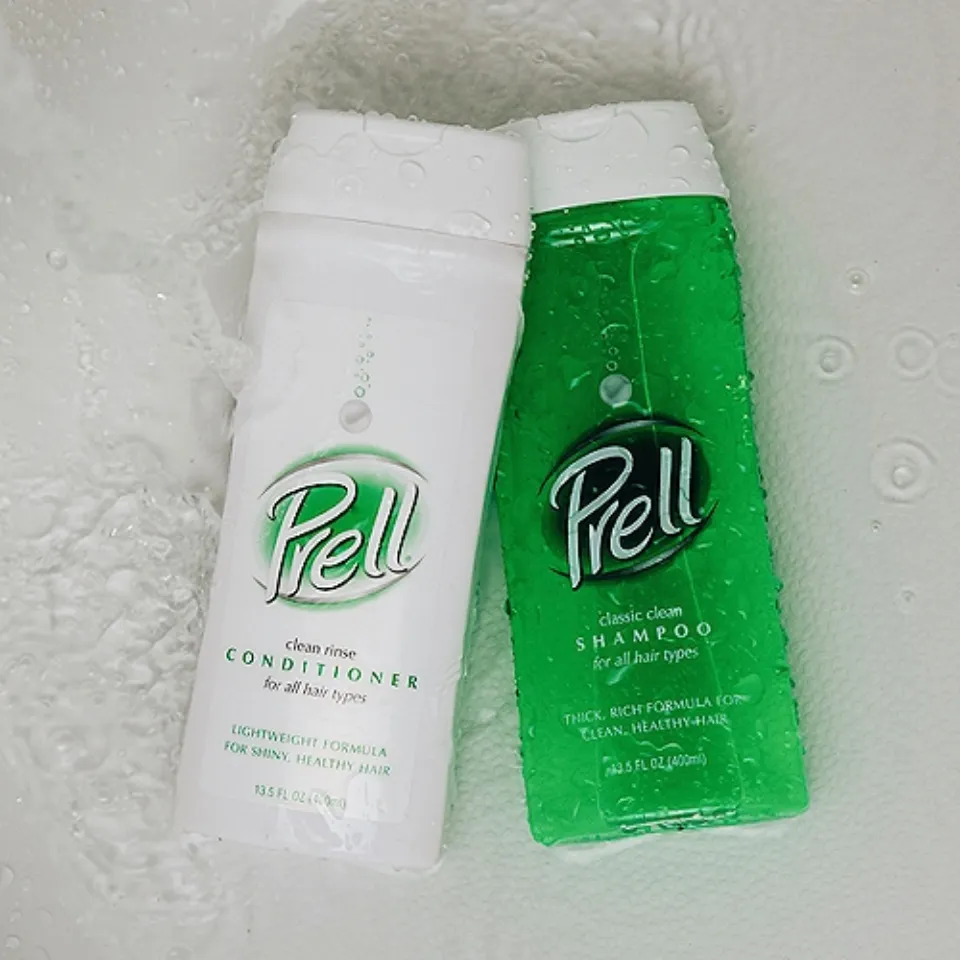Many modern homeowners choose cork as their eco-friendly flooring because of its low maintenance requirements, and ability to absorb sound, warmth, and comfort underfoot. Is this the best option for you? Find out here.
Cork-based flooring is a mildew and mold-resistant flooring option because it naturally repels germs.
Pros of Cork-Based Flooring
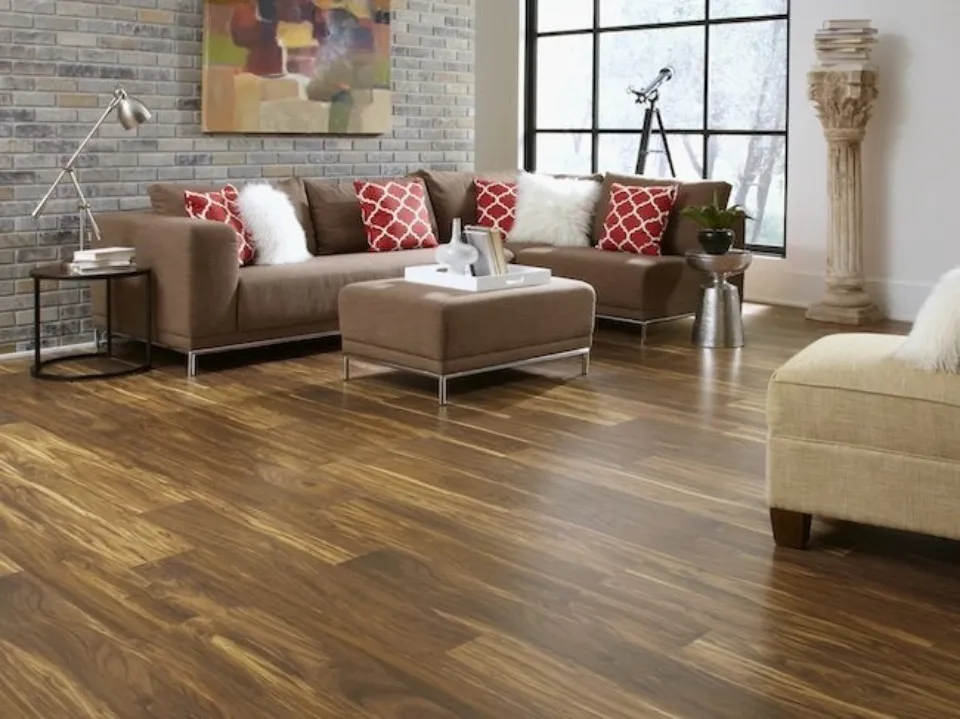
- Easy Installation: Floor tiles and planks are just two examples of the standard forms of cork flooring. (Read More: Wall vs. Floor Tile: Can You Use Wall Tile on the Floor)
- Easy to Maintain: The beauty of cork floors can last for many years after they have been polyurethane sealed. Dust can be removed with a standard vacuum, and tough stains can be removed with a damp mop.
- Hypoallergenic: Natural mildew resistance, hypoallergenic, and the availability of antimicrobial cork planks all make cork flooring a desirable option.
- Comfortable: Cork is a great flooring option because it is cozy to stand and walk on for extended periods of time.
- Environmentally Friendly: Because cork comes from the cork oak tree, whose bark can be repeatedly harvested sustainably, it is an environmentally friendly type of wood flooring.
- Naturally Soundproof: Your home can benefit from the natural acoustic insulating properties of cork. This indicates that it has distinct advantages over other floorings, particularly in spaces above basement apartments, home offices, or hangout areas.
- Stays Warm: Let’s face it: nobody enjoys living in socks all the time. Fortunately, cork has a warmth advantage over hard surfaces like tile, hardwood, and others. Cork is excellent at retaining heat in a room, unlike tile and hardwood, which can become chilly underfoot in the winter. Cold toes will no longer be an issue! (Read Also: Hardwood Vs. Engineered Wood Flooring – Which is Better?)
- Water-Resistant: It’s a fun fact that cork is naturally water-resistant! which is why it’s used to seal wine bottles. This makes it a great material for areas with a high potential for messes, such as those where children play or eat. Just be sure to wipe up any spills promptly. (Read More: Waterproof vs. Water-Resistant Flooring – Which Should I Choose)
Cons of Cork Flooring

- Sensitive to Light: Cork might not be the best choice for your home if you prefer to keep your curtains drawn back to let in natural light. Nobody wants a floor that is discolored and patchy because direct sunlight is known to fade floors over time.
- Must Be Sealed to Prevent Swelling: Although cork is naturally water-resistant if liquids are left on your floors for a long enough period of time, they will eventually absorb. Your cork floors may swell or disintegrate once the liquid has been absorbed. This can be expensive because flooring repairs can cost up to $500. Installing a cork floor typically includes polyurethane or wax sealants. Every two to three years, these must be reapplied for.
- Not as Durable as Some Types of Floors: Cork is undoubtedly resilient, but synthetic materials such as vinyl and linoleum are better able to withstand the weight of heavy objects than cork. Moving heavy pieces of furniture, like a couch, around your living room could permanently dent the cork floors. Additionally, cork may enlarge or contract as a result of moisture, just like other kinds of hardwood that change with the seasons.
- May Not Be Great for Pet Owners: Cork is probably not the best floor covering for a home with a dog that likes to run around or a cat that likes to stretch and scratch. Your pet has a good chance of permanently ruining some of your floor.
What is Underlayment?
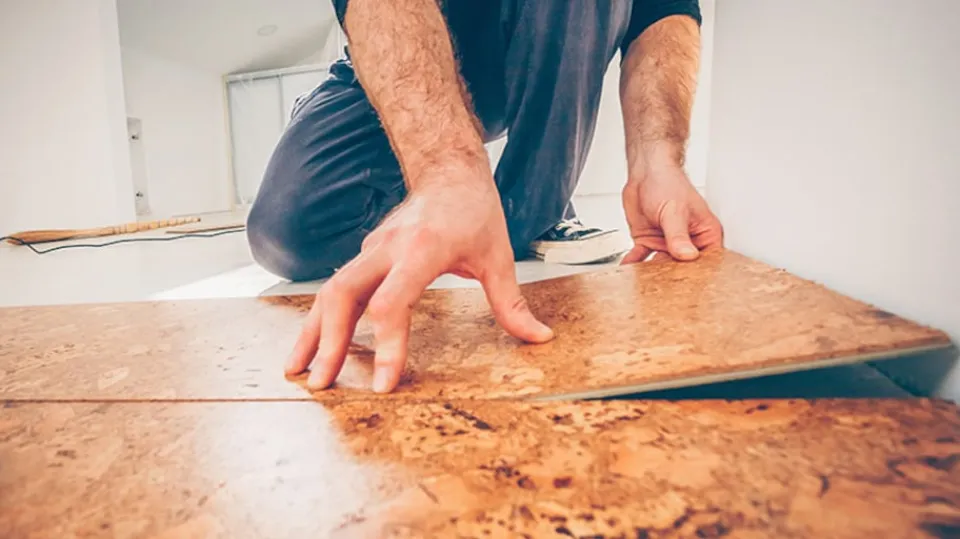
Use of an underlayment is crucial when installing vinyl flooring. This material layer, which sits between the floor and the vinyl, has a few functions.
- It guards against damage to the flooring.
- It aids in soundproofing and insulating the space.
- It simplifies and improves the stability of the installation process.
Foam and cork are the two main varieties of underlayment, as has already been mentioned.
Read More: How To Fasten Underlayment To Subfloor – Step-by-Step Guide
Why Should You Choose Cork Flooring?
The choice of what to install underfoot is crucial in our ongoing quest to make our homes beautiful reflections of who we are. Shiny oak is the solution for some, and salvaged pine planks or tiles in the Mediterranean design for others. Cork flooring has grown in popularity over the past few years.
Foam Back Vs Cork Back: Which is Better?
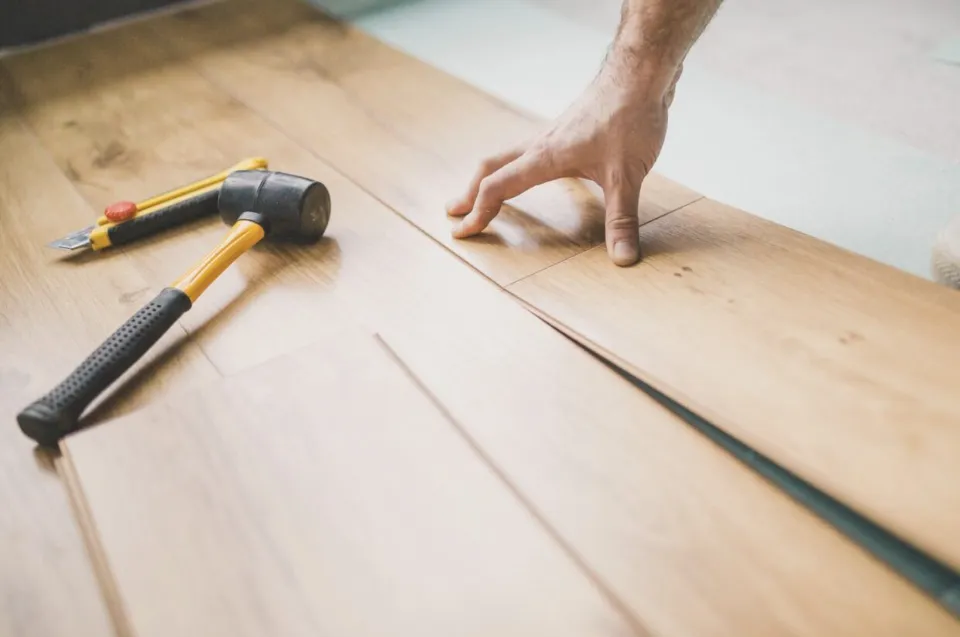
Which underlayment material—foam or cork—is best? The answer is based on your individual requirements and preferences.
Foam core backing would be a good option if you’re looking for something reasonably priced. A foam core backing provides thermal and acoustic insulation, making it a good choice for environments with extreme temperatures or noise exposure.
Cork is a better option if you’re looking for a material that is sustainable and friendly to the environment. The excellent sound absorption properties of cork make it a superior material for reducing noise transfer between floors and rooms. It should be noted, though, that cork is more expensive than foam core insulation.
Is Cork Flooring Right for You?
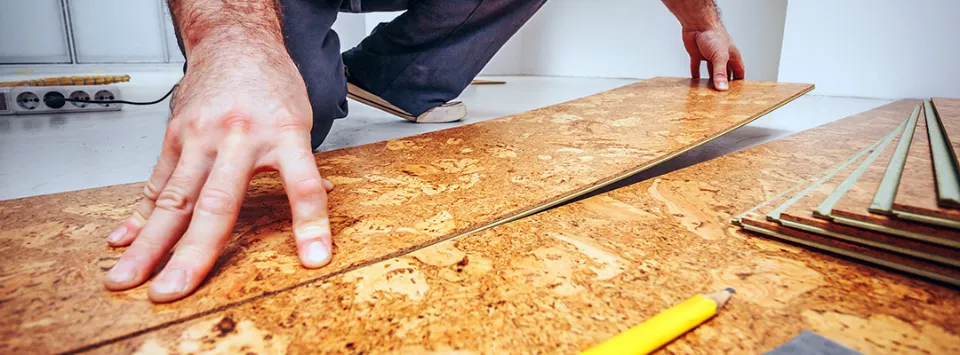
For many uses, cork flooring can be a fantastic option. It’s ideal for children’s rooms or locations where you might need to stand for extended periods of time (like the kitchen) because it’s soft, springy, and has just the right amount of give. Moreover, depending on the kind of product you select, installation may be very straightforward.
A cork floor will be resistant to termites and mold and mildew once it has been properly sealed. It is also an environmentally friendly option and doesn’t have the off-gassing problems that can occur with other types of natural flooring.
There are, of course, disadvantages, such as the requirement for frequent maintenance, which deters many buyers. It is essential to pick the right product and consider where to place it because it can fade over time. Because of its softness, cork is susceptible to dents and gouges (cork may not be the best choice if you need a floor that can withstand heavy traffic and furniture). You will need to completely redo the finish if it is damaged.
Conclusion
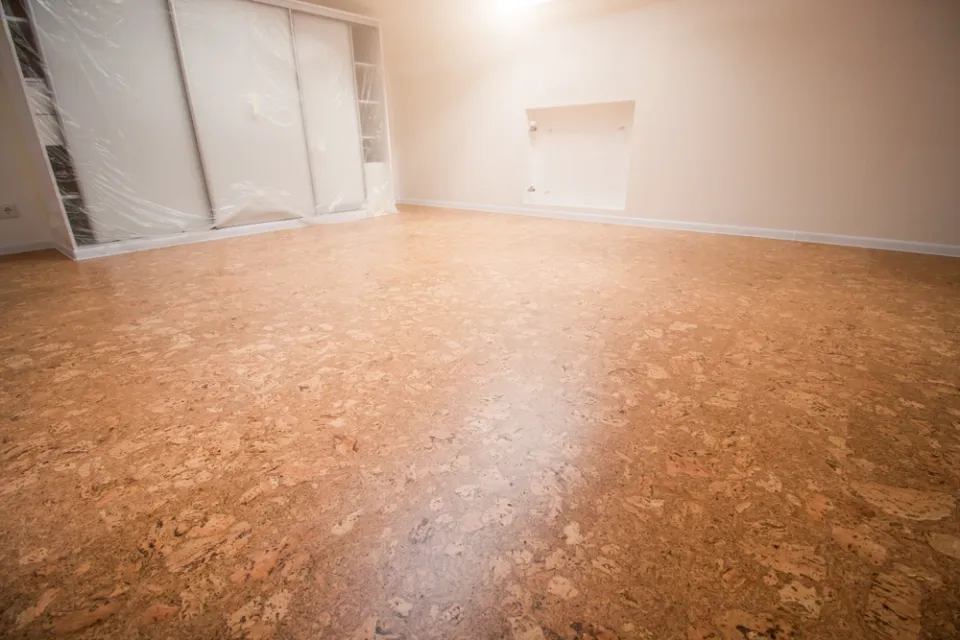
So, is cork the material for you? You must now make a choice based on the advantages and disadvantages of cork flooring. Thankfully, you don’t have to do it by yourself. Get advice from a local flooring retailer; after all, they are professionals.
FAQs
What is One Downside of Cork Flooring?
Compared to other types of flooring, cork is more prone to damage because it is such a soft material. A cork floor will be damaged by dog and cat nails, as well as by heavy appliances and furniture that can leave permanent dents.
Is Cork Backed Flooring Good?
Due to its unmatched durability when compared to other flooring materials, cork is the perfect flooring product.
Is Cork Backed Vinyl Flooring Any Good?
This makes it a good option for acoustic and thermal insulation. One of the best insulating materials available is cork, which also has a high R-value. Cork is a good material to use to lessen noise transmission between floors and rooms because it is also a good sound absorber.
Are Cork Floors Hard to Maintain?
There are specific cleaning guidelines to follow if you want your cork floors to look great for years to come, even though they are still considered to be a relatively low-maintenance option, especially with the improvements manufacturers have recently made.






